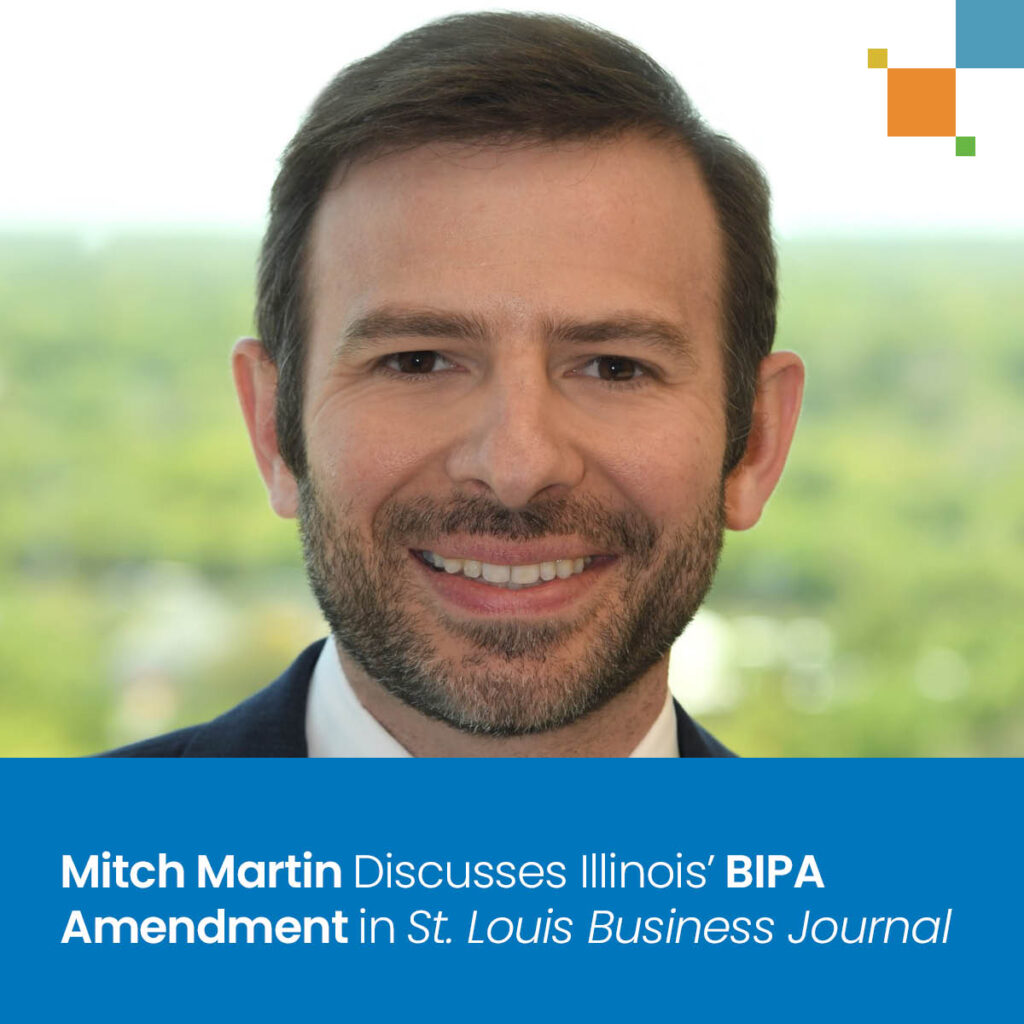Spencer Fehn attorney Mitch Martin’s perspective was recently featured in the St. Louis Business Journal article, “Illinois Revised Biometric Privacy Law is More ‘Business Friendly,’ Lawyer Says.” In the feature interview, Mitch explained the impact of Illinois Governor JB Pritzker’s amendments to the state’s longstanding Biometric Information Privacy Act (BIPA), which prohibits businesses from collecting biometric data from employees and consumers without their explicit written consent and disclosure. The amendments, which went into effect on August 2, change the compensation limits from per violation to per person.
Mitchell offered his thoughts on what the changes mean for businesses, explaining that they “are not going to significantly curb class action lawsuits in Illinois,” especially when it comes to managing class actions with thousands of plaintiffs. “While the changes are pro-business, the law itself is not pro-business by any stretch of the imagination,” Mitchell declared.
The discussion with the St. Louis Business Journal was sparked by Mitch’s recent blog for Spencer Fehn, “Billion-Dollar Biometric Violation: Meta Reaches Largest Attorney General Settlement in History at $1.4 Billion for Alleged Violation of Texas Biometric Privacy Act.” The blog describes how Texas’ CUBI law led Meta to reach the largest settlement in U.S. history with a single state Attorney General’s office. The article also highlights how large biometric privacy judgments and settlements are becoming increasingly common across the U.S. Among privacy laws, Mitch writes that Illinois’ BIPA was the “most notoriously punitive” for 16 years.
At the firm, Mitch represents businesses of all sizes. His practice is focused on ensuring clients comply with federal and state privacy laws, but also advises them on how to comply with legal issues surrounding AI, biometric data, and emerging technologies. For over a decade, he has also litigated a wide range of multi-million dollar commercial disputes, including consumer class action lawsuits alleging privacy violations.
Read the full St. Louis Business Journal article here and Spencer Fehn’s blog here. Note that you’ll need a subscription to read the former.



